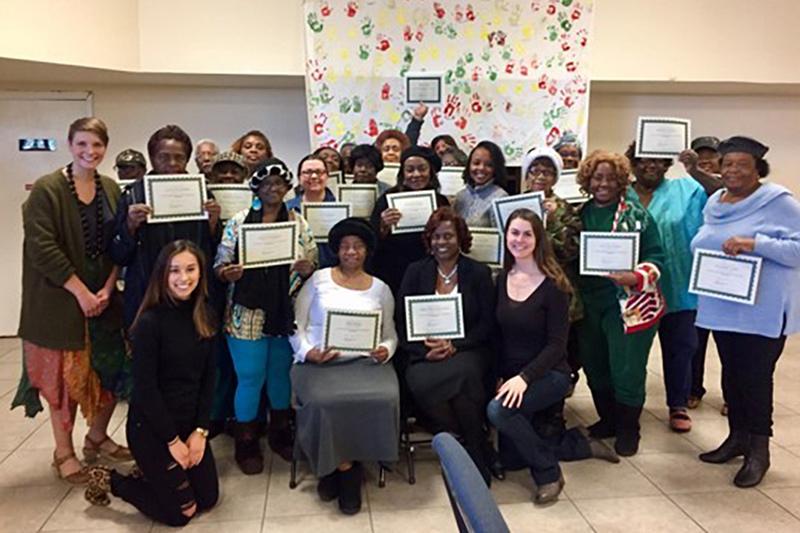NOLA LEADs project trains community health leaders
Anyone can be a health leader with the right tools and skills, according to NOLA Leadership Education & Action on health Disparities (NOLA LEADs), a two-year citizen-training project coordinated by the Tulane Prevention Research Center (PRC).
"We are committed to sharing the insight we've gained from this program so that other communities can replicate our model," said Ashley Wennerstrom, an assistant professor of clinical medicine at the Tulane School of Medicine and a collaborating faculty member at the PRC, which oversaw the $300,000 training project funded by the Centers for Disease Control and Prevention.
Starting in spring 2016, NOLA LEADs recruited New Orleans individuals who had not worked in public health previously to participate in this institute free of charge. The institute included a series of six trainings held over three months that focused on helping people develop the skills and knowledge needed to advocate for changes in structural conditions – such as zoning laws, school policies and transportation systems – that contribute to health disparities. Much of the program was modeled after the Louisiana Community Health Worker Institute, a program that Wennerstrom founded and currently directs.
Wennerstrom’s team collected feedback from participants through surveys and interviews.
"As we've followed up with our trainees, we've been happy to see that they feel better equipped to address health disparities and improve their neighborhoods," said Jeanette Gustat, another Tulane PRC faculty member who serves as a co-investigator on the project and is a clinical associate professor of epidemiology at the Tulane School of Public Health and Tropical Medicine. "Ultimately, they reported that they had increased leadership and communication skills, confidence in their abilities, and participation in leadership and community activities."
The team compiled a one-page summary to share this project's outcomes at events like health fairs and neighborhood meetings.


